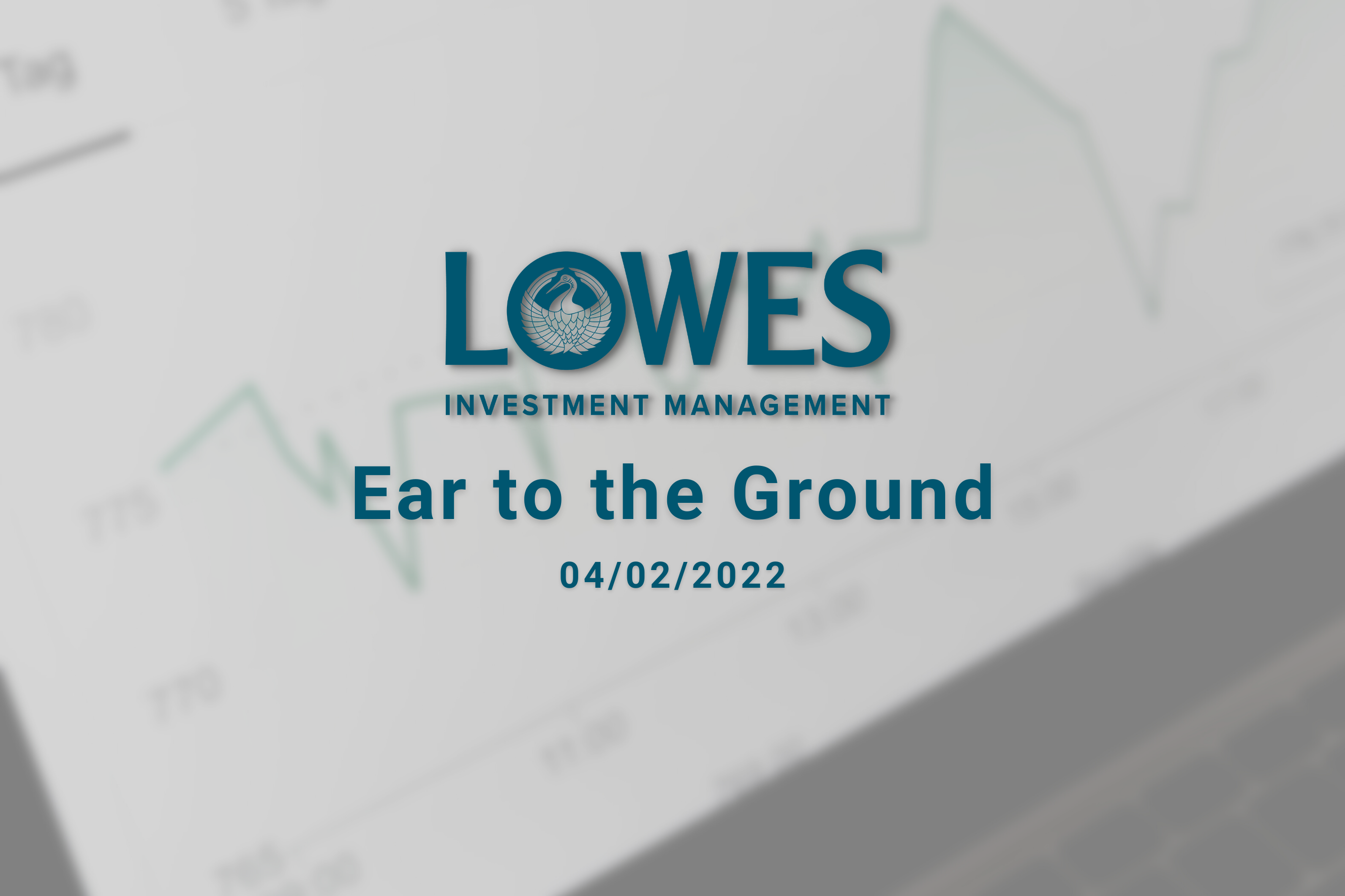Ear to the ground
04 February 2022

This week we expected the Bank of England meeting on Thursday to sit at the top of the agenda. However, activity in certain equities this week has eclipsed this and moved into top spot. On Thursday we saw Facebook parent Meta’s share price fall more than 26% after reporting a weaker than expected revenue forecast. This saw more than $232bn wiped off the value of the company and represented the biggest one day drop in value in the history of the US stock market. Facebook also reported a drop in daily active user numbers which disappointed the market. CEO Zuckerberg announced that Meta had a net loss of $10bn in 2021.
Meta was not the only tech based company to see their share price fall sharply this week, with PayPal joining them. They saw their share price fall over 29% from their close on Tuesday to their close on Thursday. Despite the company still forecasting strong revenue growth the fact that it was below forecast was enough to turn sentiment negative. Although the company still expects to open between 15 to 20 million accounts this year, this is less than that seen in 2021.
Up to now the major falls seen have, in the main, been in non-profitable technology and software companies. Movements this week, however, perhaps suggest that their large cap, profitable counterparts are priced for perfection. Whilst they might be and remain profitable, any misses on previous guidance look like they will be punished by investors. On the other side of the coin we have Amazon whose share price is trading more than 12% higher on their previous close at the time of writing. Profits came in strong but what the market took positively was the decision to increase the price of an Amazon Prime subscription in the US from $119 to $139 to protect against rising operating costs, including higher wages.
So, finally to the Bank of England. At their latest meeting on Thursday the Monetary Policy Committee voted in favour of increasing the base rate by a further 0.25% to 0.5%, taking the rate to its highest level in 2 years. This was very much in line with market forecasts. What caught the market off guard somewhat was the way the voting had gone. Whilst all had voted in favour of a hike, four policymakers had voted for a larger rise of 0.5%. As well as this, the committee also voted to start the reduction of UK gilt purchases by ceasing to reinvest maturing assets. They will also look to complete the sale of corporate bond holdings no earlier than the end of 2023. Liquidity tightening at the same time as we are seeing monetary policy tightening - one to watch.
In terms of inflation, the Bank now expect inflation to continue rising from the current 5.4% level, to close to 6% in February and March, before peaking around 7.25% in April, after which it should start to move back to the 2% target level over the 2 year horizon window. They also signalled that further tightening is likely to be appropriate in the coming months if economic and inflation data remained in line with current predictions. In perhaps a sign that inflation could get out of hand the Governor of the Bank did not cover himself in glory by asking that workers who are negotiating their pay this year do not to ask for too high a rise to help bring inflation under control. The public perhaps had the right to be upset when this was accompanied with the warning of a record slide in living standards.
Whilst the ECB refrained from putting rates up this week the pressure is certainly building. Inflation for the Euro area was released this week at 5.1%, higher than expected. Core inflation, excluding food and energy, came out at 2.3%. With the Bank of England and US Federal Reserve now moving towards reducing the size of their balance sheets, eyes will be focussed on how the reduction in liquidity impacts the performance of the stock market, if at all. There was certainly a positive correlation between the increase in central bank balance sheets and the performance of global equities. Will there be the same correlation as balance sheets shrink? As we have previously been reminded, correlation does not mean causation.
This article is for information purposes only and should not be construed as advice. We strongly suggest you seek independent financial advice prior to taking any course of action.
The value of this investment can fall as well as rise and investors may get back less than they originally invested.
Past performance is not necessarily a guide to future performance.
The Fund is suitable for investors who are seeking to achieve long term capital growth.
The tax treatment of investments depends on the individual circumstances of each client and may be subject to change in the future. The above is in relation to a UK domiciled investor only and would be different for those domiciled outside the UK. We strongly suggest you seek independent tax advice prior to taking any course of action.
Subscribe Today
To receive exclusive fund notifications straight into your inbox, please complete this form.